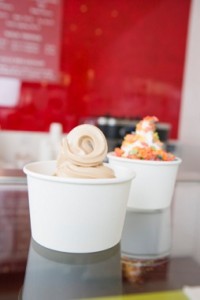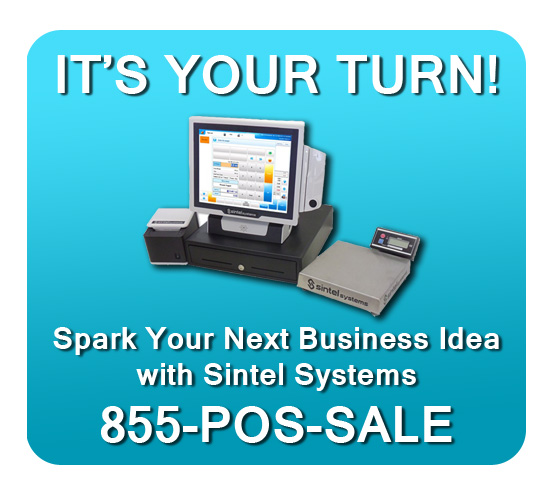 If you are thinking of opening, buying, continuing, selling or possibly closing down a frozen yogurt store, California may be the fortune teller you have been looking for to guide you. The extensive amount of experience and data collected by frozen yogurt’s leading point of sale provider and market conditions have solidly exhibited the frozen yogurt market cycle trends.
If you are thinking of opening, buying, continuing, selling or possibly closing down a frozen yogurt store, California may be the fortune teller you have been looking for to guide you. The extensive amount of experience and data collected by frozen yogurt’s leading point of sale provider and market conditions have solidly exhibited the frozen yogurt market cycle trends.
One of the most difficult assessments when starting a seemingly popular business is trying to understand if the idea is a fad or concept to stay. This is as true in the eatery business as any other type of operation. Geographic separation contributes to the same business idea starting at different times as new areas discover the idea. Prudent businesses should look to markets that started before them in other areas to get a glimpse into the future.
The good example of this is the ongoing debate about self-serve frozen yogurt which may have finally seen the end of this debate compliments of the Golden State (California). Critics on the sidelines have argued [wrongly] for years that frozen yogurt is fad and will eventually disappear, but shops in California continue to enjoy expansion and pricing power. The State of California leads the nation and globe in many aspects. From the tech companies of Silicon Valley to blockbuster movie makers in Hollywood, the State brings much to the Union and is the birthplace of many concepts including self-serve frozen yogurt. Pioneers often learn lessons that others can capitalize on.
 Less than two decades ago, the self-serve concept started to take shape in areas such as Los Angeles and San Francisco. Successful concepts have the same short-term effects that failing fads do. There are two general manners in which new idea experiences slowdowns. Either the number of providers goes up and/or the demand for the product goes down. Successful concepts invite new competitors, which in turn increases the supply of stores. As the number of stores increases, the revenue per store in a trade area decreases and eventually places pressure on prices. On the opposite end of the spectrum are failing fads who start to experience both an increase in the numbers of stores and a falling demand from the consumer simultaneously. For the skeptics, California has proven that self-serve frozen yogurt is a part of the former group: a concept here to stay. Facts about today’s California frozen yogurt market:
Less than two decades ago, the self-serve concept started to take shape in areas such as Los Angeles and San Francisco. Successful concepts have the same short-term effects that failing fads do. There are two general manners in which new idea experiences slowdowns. Either the number of providers goes up and/or the demand for the product goes down. Successful concepts invite new competitors, which in turn increases the supply of stores. As the number of stores increases, the revenue per store in a trade area decreases and eventually places pressure on prices. On the opposite end of the spectrum are failing fads who start to experience both an increase in the numbers of stores and a falling demand from the consumer simultaneously. For the skeptics, California has proven that self-serve frozen yogurt is a part of the former group: a concept here to stay. Facts about today’s California frozen yogurt market:
1. Most of the frozen yogurt stores that have opened in the last 24 months have been franchise locaitons such as Yogurtland, TCBY, and Häagen Dazs (serving Frozia).
2. Frozen yogurt consumption (per capita) continues to grow.
3. 2013 and the first half of 2014 have seen the most number of openings in several years.
4. Shop closures are very rare.
5. Frozen yogurt prices (per ounce) are at an all time high. California dipped into the $0.20’s. The average prices is now $0.39 and up to $0.49.
6. Over a quarter of frozen yogurt shop owners operate at least three locations.
There is much to learn from the lessons of California. As frozen yogurt took hold in the State in its early days, those who entered the business first enjoyed great returns. The success naturally invited competitors, and the market began to be saturated even though overall frozen yogurt consumption continued to grow. The challenge was that there were simply too many stores, and the pioneers who originally enjoyed healthy returns in their first few years were not able to see the bigger picture in relative terms. As the market became competitive, some “froyo” business owners even started to lower prices, which exacerbated the matter. Mom/pop locations were the first victims and were forced to close. On the other hand, operations that were part of a franchise (i.e. Yogurtland) had advantages (i.e. brand recognition) that allowed those stores to stay longer. Even so, panic still took hold of some franchise-owned stores who could not see the light at the end of the tunnel.
 Many of the locations who decided to either sell or close ended up actually selling at the low of the market. This is because market saturation has a domino effect which eventually leads to oversold (under-supplied) conditions. First, potential entrepreneurs stop opening stores. The stores that already exist start closing which further discourages new stores from opening. This then leads to a notion that the idea was a “fad”, and consequently, even more stores close. The overall experience then discourages new entrants into the market for years as the market matures and surviving franchises grow deeper roots . Its final effect is that the market (like California) is left with mostly franchises creating barriers to entry for mom/pop operations and ensuring that any new store is affiliated to an established franchise. As this occurs, remaining stores start seeing an increase in revenues with much less threat from future competitors.
Many of the locations who decided to either sell or close ended up actually selling at the low of the market. This is because market saturation has a domino effect which eventually leads to oversold (under-supplied) conditions. First, potential entrepreneurs stop opening stores. The stores that already exist start closing which further discourages new stores from opening. This then leads to a notion that the idea was a “fad”, and consequently, even more stores close. The overall experience then discourages new entrants into the market for years as the market matures and surviving franchises grow deeper roots . Its final effect is that the market (like California) is left with mostly franchises creating barriers to entry for mom/pop operations and ensuring that any new store is affiliated to an established franchise. As this occurs, remaining stores start seeing an increase in revenues with much less threat from future competitors.
So, if you are thinking of starting, continuing, or ceasing operations at a frozen yogurt store here are some tips.
- Opening: The best time to open a frozen yogurt shop is either in the beginning or towards the end of a market cycle.
- Continuing: Depending on when you opened, expect to go through market cycles. Opportunities exist where others do not see them. As an example, while most were panicking in the middle to end of the slowdown in California, smart owners of frozen yogurt shop were looking to expand by picking up stores, equipment, and locations at the low from others. Remember (Buy Low, Sell High). As others were cutting cost, they were increasing marketing budgets. One person’s crash was another entrepreneurs market low.
- Closing or Selling: There are only a few good business reasons to close or sell a store as follows:1. The demand for the product has vanished because it was a fad.
2. The location is horrible. (If you think this is the issue, Click this article)
3. You are retiring.
4. You are getting a premium for selling the store.There are two parts of the nation today that are experiencing the pain of the market cycle. One is the Texas/Oklahoma/Kansas and surrounding areas and the other is the New England area. Ironically, a painful blow that made operations suffer more in this market cycle will be the silver lining for those with foresight. Unquestionably, the Northeast experienced one of the harshest winters (including a polar vortex) this past year which forced store closures and further pain. However, the positive is that this effectively shortened the market cycle as if forced out an above average number of exiting frozen yogurt shops that would otherwise hold on. No one can accurately predict the low of a market cycle, but if large franchises and their longer term plans are an indication, these two areas are approaching the end. Just recently U-Swirl (part of Rocky Mountain Chocolate Factory is based in Durango, Colorado) picked up two self-serve franchises at low prices to expand its reach. As large successful corporations have discovered, long term success is not achieved by great results all the time, but rather the ability to navigate the challenges and make opportunity where others see failure.
Choosing the right partners is important at anytime in the business cycle and becomes more important when the market slows. Sintel Systems which offers one-stop point of sale (POS) solutions to the frozen yogurt industry proudly supports its vast portfolio of clients across five continents. The food and eatery industry has a high failure rate and we measure our success not only by the number of POS systems we have provided, but by the number of POS systems still in use. While the industry has a high failure rate, over 95% of POS systems provided by Sintel Systems over the past 48 months are in use today.Sintel Systems is the a direct to end user full-service provider of tailored Point of Sale systems across retail, restaurant and service industries, including frozen yogurt shops, pizzerias, sushi restaurants, cafés and retail stores.
As a single source for business solutions, our experienced, knowledgeable team negotiates the complex POSlandscape for you to enable you to find the right POS system for your business and budget. Hardware – Software – Support
Questions or Comments: Contact us 855-POS-SALES www.SintelSystems.com

